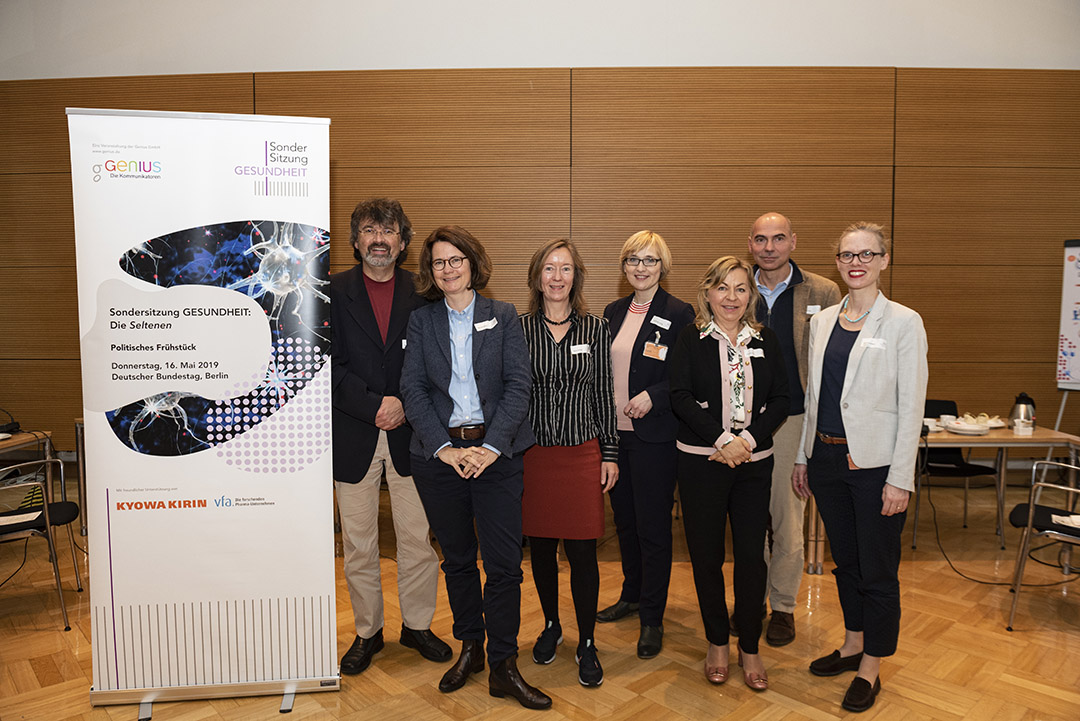Under the patronage of René Röspel, Social Democratic Party of Germany (SPD) parliamentary group, a multi-stakeholder session on rare diseases took place at the Bundestag. This platform offered the audience a discourse with representatives from policy, patients, sickness funds, academia and industry. The prevalence of about 4 million people with rare diseases in Germany was shortly acknowledged.
Professor Heiko Krude presented the main challenges he faces as a clinical expert in paediatric endocrinology at the Berliner Charité, where more than half of the children presenting have a rare disease. The diagnosis for rare metabolic disorders, although very advanced after the introduction of exome sequencing, still remains a challenge. Moreover, he pointed at the lack of publicly funded clinical research, raising the question if a higher federal authority like the Robert Koch Institute should assume responsibility for orphan drug matters.
During the subsequent discussion, the success of the incentives introduced by the EU legislation since the Orphan Regulation was highlighted, about one-third of new pharmaceuticals launched with orphan designation. Registries as European requirements were highly encouraged. Improving psychosocial care in clinical practice was recognised as crucial for patients and family caregivers.
The huge potential of digitalisation was considered as not fully explored because of remaining coding barriers for individual symptoms; documentation still being the tool used for unclear diagnosis. It was highlighted that sickness funds have no primary interest in patients’ data and networking with eHealth was encouraged. While the introduction of the electronic patient plan could facilitate the patient pathway, the psychosocial component would only be achieved by case managers.

From left to right: René Röspel, Mirjam Mann, Sabine Sydow, Christiane Freitag, Andrea Galle, Heiko Krude and Nele Herrmann Valente. Photo by © Andreas Neßlinger
